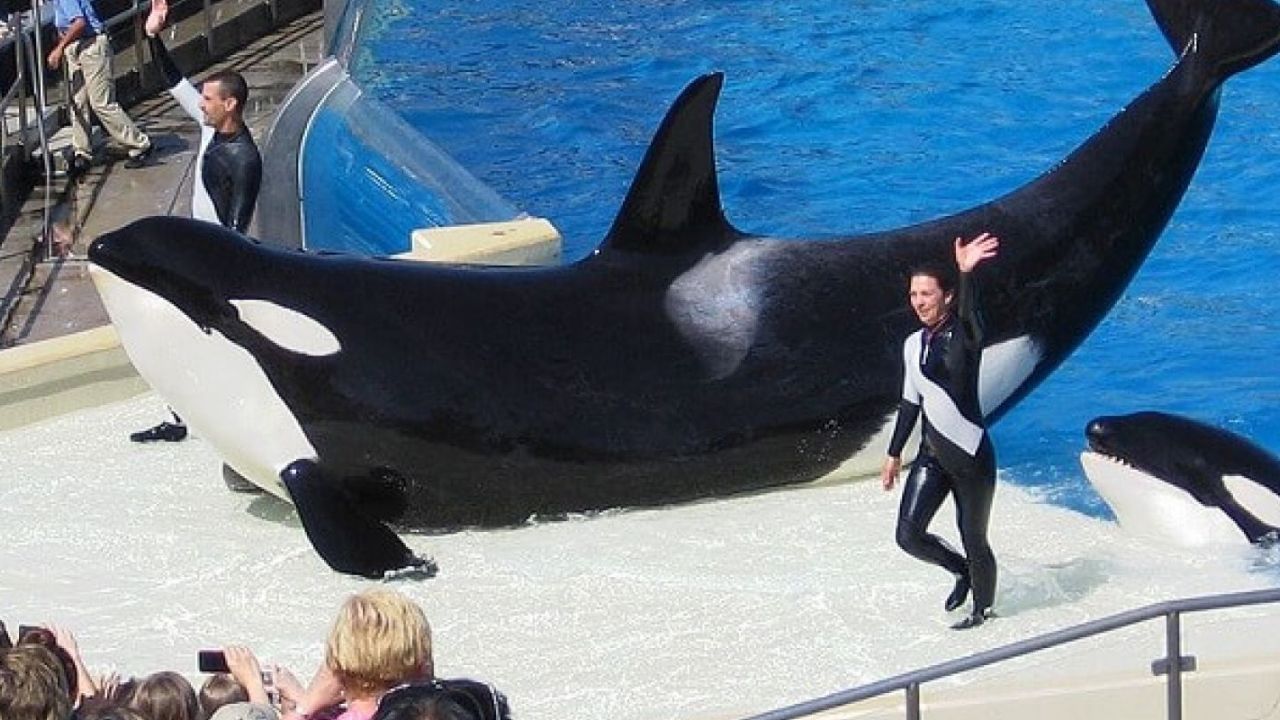Do Orcas Attack Humans? Orcas, also known as killer whales, rarely attack humans in the wild. Most incidents involving orcas and humans occur in captivity.
Orcas, commonly known as killer whales, are among the most intriguing and powerful marine mammals.
Their distinctive black and white coloration makes them easily recognizable, and their reputation as formidable predators has earned them a somewhat fearsome reputation.
Despite this, the question arises: do orcas attack humans?
In this comprehensive article, we will explore the nature of orcas, their interactions with humans, and debunk common myths surrounding these magnificent creatures.
Contents
Understanding Orcas
Physical Characteristics
Orcas are the largest members of the dolphin family. They can grow up to 32 feet in length and weigh as much as 6 tons.
Their striking black and white color pattern, with a sleek, streamlined body, makes them one of the most recognizable marine animals.
The large dorsal fin, which can reach up to 6 feet in males, is another distinctive feature. [Do Orcas Attack Humans?]
Social Structure and Behavior
Orcas are highly social animals, living in pods that can range from a few individuals to over 40 members. These pods are often matrilineal, meaning they are led by the oldest female.
The social bonds within a pod are strong, and orcas exhibit complex behaviors such as cooperative hunting, vocal communication, and caring for injured or sick pod members.
Intelligence and Communication
Orcas are known for their intelligence. They possess large brains, and their cognitive abilities are comparable to those of great apes.
They use a variety of vocalizations, including clicks, whistles, and pulsed calls, to communicate.
Each pod has its own unique dialect, which helps them coordinate activities and strengthen social bonds.
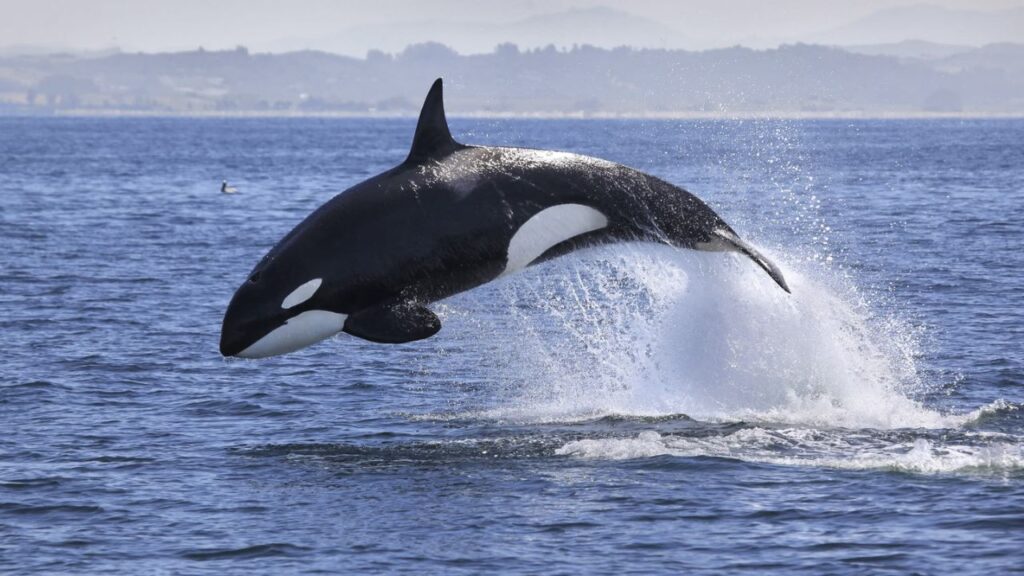
Do Orcas Attack Humans in the Wild?
Historical Context
Historically, there have been very few recorded instances of orcas attacking humans in the wild.
The first documented encounter occurred in the early 19th century when sailors reported being followed by orcas.
However, these incidents were more about curiosity than aggression. [Do Orcas Attack Humans?]
Modern-Day Encounters
In modern times, encounters between orcas and humans typically occur during whale-watching tours or among divers.
These interactions are generally peaceful, with orcas showing curiosity rather than hostility. There are no documented cases of wild orcas killing humans, and aggressive behavior is extremely rare.
Case Studies
Kayak Incident in California
In 2015, a group of kayakers off the coast of California had a close encounter with a pod of orcas. The orcas approached the kayaks, swimming underneath and around them.
The kayakers reported feeling a mixture of fear and awe, but the orcas showed no signs of aggression and eventually swam away.
Snorkeler in New Zealand
In another instance, a snorkeler in New Zealand was approached by a wild orca. The orca circled the snorkeler, displaying curious behavior.
The snorkeler remained calm, and after a few minutes, the orca swam away. This encounter highlighted the inquisitive nature of orcas and their general lack of interest in humans as prey.
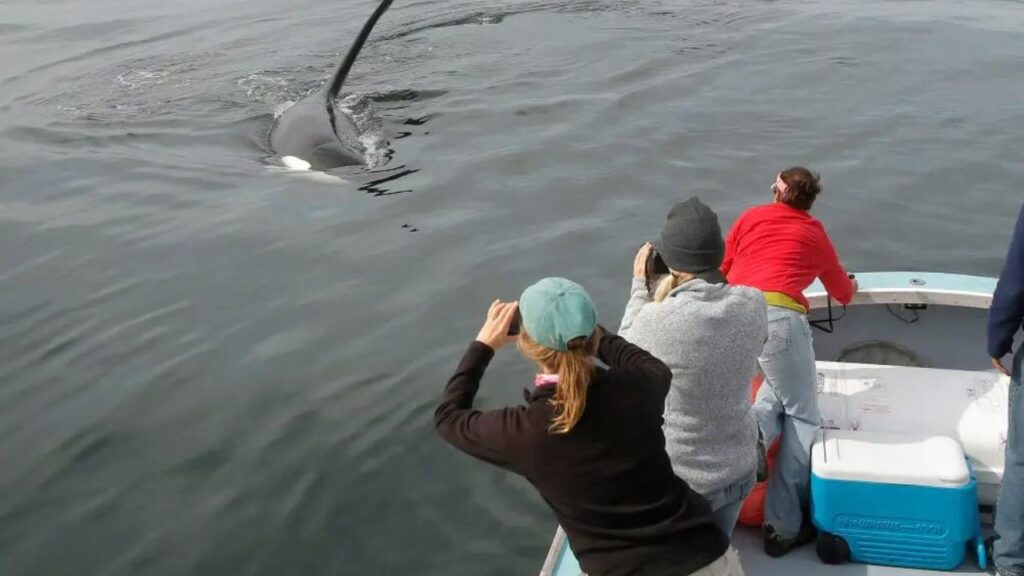
Incidents in Captivity
Stress and Confinement
The majority of recorded orca attacks on humans have occurred in captivity. [Do Orcas Attack Humans?]
Orcas in marine parks are often confined to small tanks, separated from their natural pods, and subjected to repetitive routines. This environment can cause significant stress, leading to aggressive behavior.
High-Profile Cases
Tilikum at SeaWorld
One of the most well-known cases involves Tilikum, an orca at SeaWorld. Tilikum was involved in the deaths of three people, including a trainer.
The conditions of his captivity, including isolation and lack of stimulation, were significant factors contributing to his aggressive behavior.
This case brought widespread attention to the ethical issues surrounding keeping orcas in captivity.
Keto in Loro Parque
Another case involves Keto, an orca at Loro Parque in Spain. In 2009, Keto killed a trainer during a training session.
Investigations revealed that Keto had been displaying signs of stress and aggression due to his captive environment.
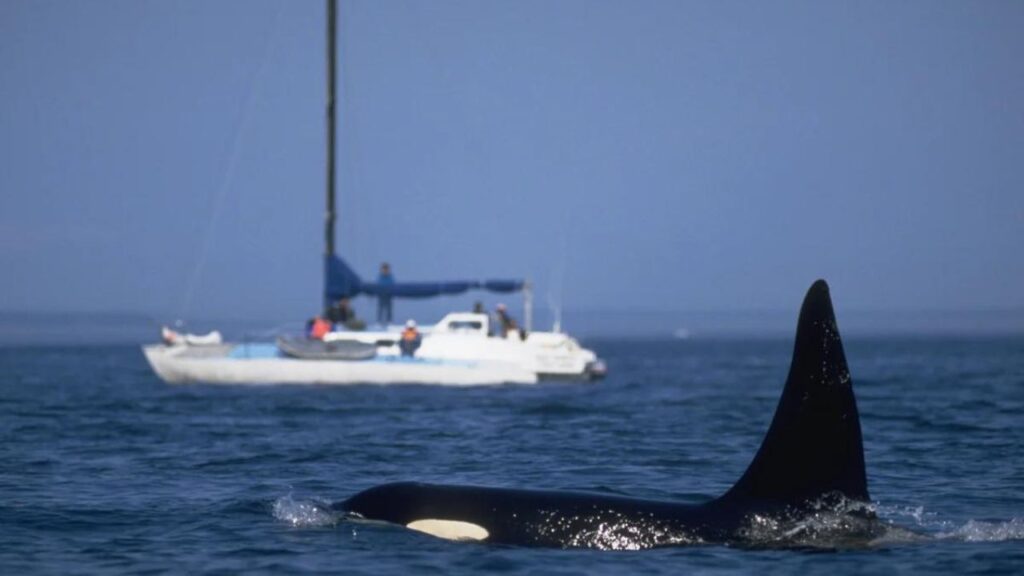
Ethical Considerations
The incidents of orca attacks in captivity have sparked debates about the ethics of keeping such intelligent and social animals in confinement.
Many experts argue that the physical and psychological needs of orcas cannot be met in captivity, leading to stress-related behaviors.
Misconceptions and Media Influence
The “Killer Whale” Misnomer
The name “killer whale” contributes significantly to the fearsome reputation of orcas. [Do Orcas Attack Humans?]
This name originated from their role as apex predators, capable of hunting large marine animals such as seals, sea lions, and even whales.
However, this moniker is misleading when considering their interactions with humans.
Media Sensationalism
Media portrayals of orca attacks often exaggerate the danger these animals pose to humans. Sensationalized stories and dramatic headlines can create a skewed perception, making orcas appear more threatening than they are.
Documentaries like “Blackfish” have also highlighted the darker aspects of orca captivity, but these narratives can sometimes overshadow the peaceful nature of wild orcas.
Public Perception
The combination of a fearsome name and media sensationalism has led to widespread misconceptions about orcas.
Many people still believe that orcas are dangerous to humans, despite evidence to the contrary. [Do Orcas Attack Humans?]
Educating the public about the true nature of orcas is essential for fostering a better understanding and appreciation of these animals.
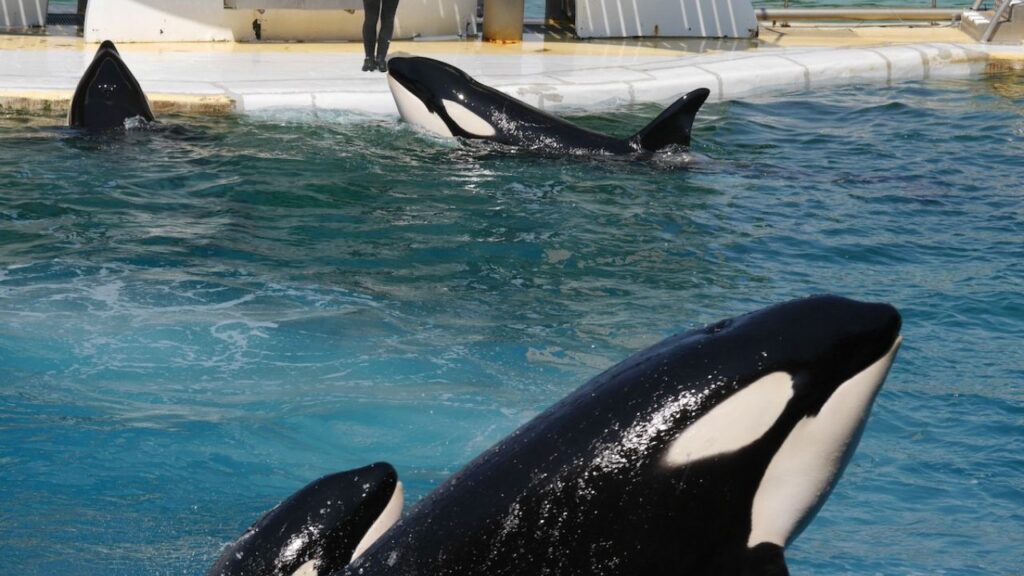
The Role of Orcas in Marine Ecosystems
Apex Predators
As apex predators, orcas play a crucial role in maintaining the balance of marine ecosystems. They help regulate the populations of their prey, preventing overpopulation and promoting biodiversity.
For example, orcas preying on seals and sea lions help keep these populations in check, which in turn affects the populations of fish and other marine organisms.
Ecological Impact
The presence of orcas can have a cascading effect on marine ecosystems.
Their hunting behaviors can influence the distribution and behavior of prey species, leading to changes in habitat use and feeding patterns.
This dynamic interaction contributes to the overall health and stability of the ocean environment.
Conservation Efforts
Understanding the ecological importance of orcas underscores the need for their conservation. [Do Orcas Attack Humans?]
Protecting where orcas live, controlling activities like fishing and shipping, and tackling problems such as pollution and climate change are crucial to keeping orcas safe and ensuring their survival.
Conservation efforts also include advocating against the captivity of orcas and promoting ethical wildlife tourism practices.
See Also: Do Bobcats Attack Humans? Uncovering the Risk!
Frequently Asked Questions (FAQs)
Have There Been Any Fatal Orca Attacks on Humans in the Wild?
No, there are no confirmed fatal orca attacks on humans in the wild. Orcas generally do not perceive humans as prey and tend to avoid contact.
Why Do Orcas Attack in Captivity?
Orcas in captivity can experience stress, frustration, and boredom due to their confined environment, leading to aggressive behavior. Factors such as isolation, lack of mental stimulation, and disrupted social structures contribute to these incidents.
Can Humans Safely Interact with Orcas in the Wild?
While it is generally safe to interact with orcas in the wild, it is important to maintain a respectful distance and avoid disturbing them. Orcas are wild animals, and their behavior can be unpredictable. Responsible wildlife viewing practices are essential for both human safety and the well-being of the orcas.
How Intelligent Are Orcas?
Orcas are highly intelligent animals, capable of problem-solving, social learning, and exhibiting complex social behaviors. Their intelligence is evident in their hunting techniques, communication skills, and ability to form strong social bonds within their pods.
What Do Orcas Eat?
Orcas have a diverse diet that includes fish, squid, seals, sea lions, and even whales, depending on their geographic location and pod culture. Different orca populations have specialized hunting strategies and prey preferences, showcasing their adaptability and intelligence.
Conclusion: Do Orcas Attack Humans?
In conclusion, while the idea of killer whales attacking humans might evoke fear, the reality is that orcas rarely pose a threat to humans, especially in the wild.
Most negative interactions occur in captivity, highlighting the need for ethical considerations regarding their confinement.
By dispelling myths and understanding the true nature of orcas, we can better appreciate these incredible creatures and their vital role in the ocean’s ecosystem.
Orcas are powerful and intelligent animals deserving of our respect and protection.
Through education and conservation, we can ensure that future generations continue to be captivated by the majesty of the ocean’s top predator without fear or misunderstanding.
The true danger lies not in the orcas themselves but in our misconceptions and the way we treat these magnificent creatures.

Hello, I am Rosa Ellis, a mother of two and a wildlife blogger. I grew up in New York City, but I love exploring forests. I’ve traveled to places like Yellowstone National Park and the Amazon Rainforest to see animals up close. I know a lot about animal behavior and which animals can be dangerous to humans. Thanks for visiting my blog!

